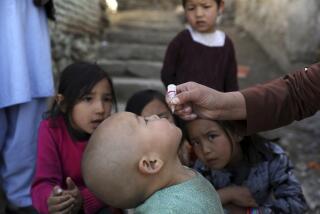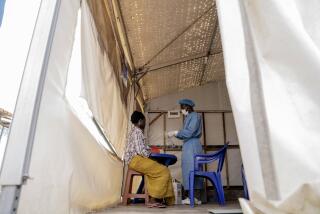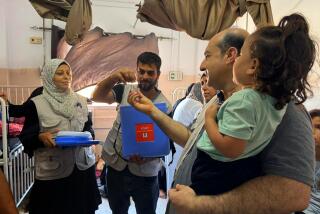An updated map: The devastating toll of the anti-vaccination movement
Marking Friday as World Polio Day, the Council on Foreign Relations has released an updated map showing the global prevalence of vaccine-preventable diseases. The map was first released in 2011. We commend Laurie Garrett of the CFR for her work pulling together the data, which covers 2008 through this year.
Check the CFR website here for an interactive version of the map, which can be clicked to show reported outbreaks by year and by disease.
As one would expect, diseases such as polio are still rife in Africa and other parts of the Third World. But the United States and Great Britain deserve badges of shame for the resurgence of measles and whooping cough, which are almost entirely due to the ignorance and fear spread by the anti-vaccine movements in those countries.
One disturbing trend related to polio, which should have been eradicated globally decades ago, is its presence in Nigeria and Pakistan. These outbreaks are closely related to campaigns of violence directed at vaccine workers and other healthcare staff. Reports of the violence are shown on the updated CFR map for the first time.
According to a research team at Boston Children’s Hospital, suspicion of the polio vaccine in Nigeria dates back to 2003, when rumors spread that “the vaccine was for sterilizing children for birth control and contained HIV.” More recently, vaccination drives have been halted by the Boko Haram insurgency. Last year, nine women working on a polio vaccination campaign were killed by gunmen.
In Pakistan, the Boston researchers report, Taliban commanders have banned polio vaccines in regions under their control. Militants are predisposed to suspect vaccination campaigns because the U.S. used a polio vaccination drive as cover for the search for Osama bin Laden in 2011. Healthcare workers “feared the deception would increase the danger to polio workers,” as indeed it has.
The toll has been significant. Pakistan’s 94 polio cases lead the world this year.
Healthcare workers in the Third World are always vulnerable to popular suspicion, for they often are strangers in the rural communities where they work and their treatments appear to be exotic. Last month, an Ebola treatment team was attacked in rural Guinea. Eight members were killed.
Outbreaks of measles and whooping cough, or pertussis, in the U.S. and Britain are inexcusable. They reflect the dangerous and discreditable influence of Andrew Wakefield, a former British doctor whose study purporting to show a relationship between the measles/mumps/rubella vaccine and autism has been exposed as a fraud. British authorities revoked Wakefield’s medical license. He current lives in Texas, from where he peppers his critics with litigation threats or lawsuits that often get thrown out of court. (See this rundown of recent developments by Dorit Rubinstein Reiss of UC’s Hastings school of law.)
The surge of measles and whooping cough cases underscore the irresponsibility of opinion leaders like Katie Couric in giving anti-vaxxers a popular platform. Too many figures in the entertainment business (Dr. Oz, I’m looking at you) don’t care about making sure their audiences get information tested by science, as long as they can rake in the big bucks. They have a lot to answer for.
Keep up to date with the Economy Hub. Follow @hiltzikm on Twitter, see our Facebook page, or email [email protected].
More to Read
Inside the business of entertainment
The Wide Shot brings you news, analysis and insights on everything from streaming wars to production — and what it all means for the future.
You may occasionally receive promotional content from the Los Angeles Times.











